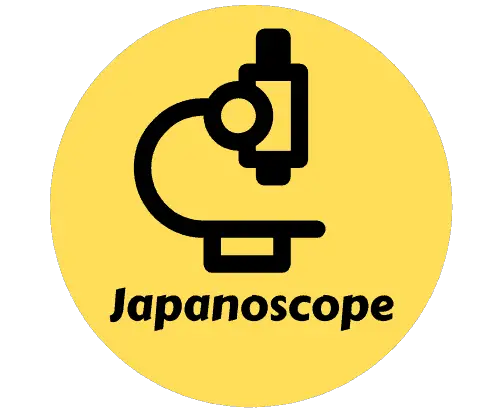
- How we use “No problem” in English
- No Problem in Japanese
- Different uses of mondai nai, “no problem”, in Japanese
- Other Japanese words that get used to mean “No problem”
- 1. “No problem” as “That’s fine” in Japanese
- 2. You’re Welcome in Japanese
- 3. No, thank you In Japanese
- 4. Don’t Worry About It in Japanese
- 5. I Don’t Mind in Japanese
- 6. It’s Okay in Japanese
- 7. Don’t mind in Japanese
- 8. Japanese loan and katakana words that can mean “No Problem”
- 9. “No big deal” In Japanese
- 10. “No Sweat” in Japanese
- 11. “I’ve got no problem with” in Japanese
- 12. More literal translations of no problem into Japanese
- In conclusion
Right up front, the easiest and most literal way to say “no problem” in Japanese is “mondai nai”.
“mondai nai” is actually one of the few words that actually translate straight across to English reasonably well.
Of course, language is always a lot more complex than that though.
But I’m hear to clear up all your Japanese “no problem” problems!
Was that phrase a little “problamatic”? Probably.
How we use “No problem” in English
The phrase “no problem” gets used in a bunch of contexts to mean a bunch of different things in English.
It can mean something close to “ok” (which we’ve written about Japanese equivalents of in the past) as in:
“There’s not enough cake for you”
“No problem”
Now, aside from the fact that there not being enough cake for you very much is a problem in my books (;) this is obviously a very different meaning from something like:
“I just crashed your expensive new sports car into someone else’s expensive new sports car”
“No problem”
Now whether or not you would have the magnanimity to use “no problem” in a situation like this, the usage here would be closer to something like “Don’t worry about it” than “okay”.
So, obviously there is some nuance that goes into using these kinds of phrases.
So let’s take a look at some of the nuances of how these sorts of phrases for “no problem” are used in Japanese!
No Problem in Japanese

Japanese has a literal translation that works in similar way to the phrase “no problem”:
問題ない
Mondai nai
“Mondai” means problem, issue or question. And “nai” means “no” or “doesn’t exist”.
It can be used in situations like:
今日はちょっと早く帰っていい?
kyō wa chotto hayaku kaette ī ?
Do you mind if I go home a little early today?
問題ないよ
mondainaiyo
No problem!
In this context, “no problem” is effectively being used to say “yes”.
In reality, you don’t really hear Japanese people using mondai nai all that often like this as in:
Can I do something?
Mondai nai
They are more likely to say something like iiyo (that’s fine”) or daijyobu (okay). But you do sometimes hear mondai nai used this way.
There are other uses for the word listed below.
About formality in saying “no problem” in Japanese
As always in Japanese, we have a lot of variation in how you say things depending on the situation and how formal the language is you should be speaking.
The negating word nai is a casual word form, so you wouldn’t be using it in any situations where formal language was called for, or where you were trying to show respect (which happens a lot in Japan!).
The different forms of mondai nai change in different situations to:
Casual: 問題ない mondai nai
Formal: 問題ありません mondai arimasen
Very formal: 問題ございません mondai gozaimasen
You can also make mondai nai more formal by adding desu on the end of it as:
問題ないです。mondai nai desu.
This way of saying “no problem” in situations is actually pretty common because it doesn’t sound too “stiff”, but still shows a level of respect to the person you are talking to. It can be a good choice for using if you are speaking to, say, someone older than you, or someone more senior than you in a work sense or, you know, a member of the police that is writing you out a speeding ticket on the highway…
Different uses of mondai nai, “no problem”, in Japanese
You find that, even though mondai nai, and its equivalent more polite forms, is a pretty good literal translation of “no problem” in some circumstances, the word is actually used quite differently in many others.
Here are some examples of mondai nai being used in a range of less or more formal settings. You’ll see that sometimes translating the phrase as “no problem” makes sense in English, other times it doesn’t:
“Could you help me find my cat?
猫を探すのを手伝って頂けますか?
No problem.
問題ないよ”
“Can you pick me up from school?
学校に迎えに来てくれる?
Sure. No problem.
もちろん。問題ないよ”
“検査をした結果、問題ないとされたので退院が決まった
kensa o shita kekka, mondainai to sareta node taiin ga kimatta
They examined me and found that I didn’t have any problems, so they let me out of the hospital.”
“このまま先に進めていっても問題ないでしょ?
kono mama saki ni susumeteitte mo mondainai desho?
There wouldn’t be any problem if I headed in this direction would there?”
“返答を待った結果、問題ないとのことだった
hentō o matta kekka, mondainai to no koto datta
After waiting on the response, there wasn’t any problem.”
“その時間に来てもらって問題ありません
sono jikan ni kitemoratte mondai arimasen
We don’t have any issues with you coming at that time.”
“このままホームページに記載しても問題ありませんか?
kono mama ho-mupe-ji ni kisaishite mo mondai arimasen ka?
So there are no problems if I go ahead and put this on the home page?”
“内容を拝見しましたが、問題ございませんでした
naiyō o haiken shimashita ga, mondai gozaimasen deshita
I looked into it, and there and found no problems.”
“こちらで日時を決定させていただきましたが、なにか問題はございますか?
kochira de nichiji o kettei sasete itadakimashita ga, nanika mondai wa gozaimasu ka?
We went ahead and put together some dates, are there any issues?”
Other Japanese words that get used to mean “No problem”
1. “No problem” as “That’s fine” in Japanese
This one is probably the most common way that people respond to questions that require a “no problems” kind of answer.
Japanese people very regularly say something akin to “that’s fine” by saying:
いいよ ii yo
Or
いいですよ ii desu yo
The word ii literally means “good”. So saying iiyo is really just like saying “all good”.
Do you mind if I eat the last cake?
最後のケーキを食べていい?
saigo no keiki wo tabete ii?
That’s fine (no problems)
いいよ。
iiyo.
If you were only going to learn one of the words out of mondai nai and iiyo, then iiyo would be the more useful one to learn.
2. You’re Welcome in Japanese

Sometimes in English we say “No problem” to mean “you’re welcome” after someone says “Thank you” .
Japanese people don’t usually use mondai nai in this way.
They are more likely to use words such as:
どういたしまして。
dōitashimashite.
わけないよ。
wakenai yo.
どうってことないよ。
dō tte koto nai yo
いいよ
ii yo
いいえ
iie
This last one, iie, literally just meaning “no” is one that we don’t have in English. Japanese will sometimes just reply “no” when you say “thank you”, in the sense of “don’t mention it” and it is actually an easy way to. Kinda cool don’t you think?
You can also more extremely rebut the thank you with:
とんでもないです
Tondemo nai desu
This could be translated as something like “Don’t be silly” in the context of having just been thanked and you trying to say something like, “Oh, really it’s nothing, don’t mention, it was nothing”.
If you want to get all formal and textbooky (now there’s a word you won’t find in the dictionary) about it, it would look like this:
Thank you so much.
ありがとうございます。
Arigato gozaimasu
No problem.
どういたしまして。
Dou itashimashite
3. No, thank you In Japanese
We don’t really say “thank you too” in English, we would usually just say “Thank you” with an emphasis on the “you”.
In Japan you can use words like:
No, thank you (emphasis on the you)
こちらこそ
kochira koso
Or, more informally, you can say
No, thank you (emphasis on the you)
こっちこそ
kocchi koso
Thanks for yesterday
機能はありがとうね。
Kinou wa arigatou ne
No, Thank you
いいえ、こっちこそ
Iie, kocchi koso
4. Don’t Worry About It in Japanese

The reply to “thankyou” goes together with the reply to “sorry” like tea and coffee. Or chocolate and coffee. Or something like that.
Either way, in English we often say “No problems” in reply to someone saying “sorry”.
This isn’t done so much in Japanese. They would be more likely to say something like this:
I’m sorry.
ごめんなさい。
Gomen nasai
No problem.
大丈夫だよ。
Daijoubu da yo
どうってことないよ。
Dou tte koto nai yo.
5. I Don’t Mind in Japanese

Sometimes in English “no problem” can actually be a nice, round-about way of saying “I don’t mind”. It tends to be quite abstract, and, thus, good for situations that may be uncomfortable. You don’t tend to hear this so much in Japanese. You are more likely to hear something like kamawanai, literally meaning “don’t mind”, in contexts like:
Is it okay if you pay the travel expenses?
交通費出してもらっていい?
Koutsuuhi dashite kureru
No problem. (I don’t mind).
構わないよ
Kamawanai yo
6. It’s Okay in Japanese

We’ve previously written a whole article on how to say Ok in Japanese. The most obvious candidate here is:
大丈夫
daijobu
Okay, alright
Do you mind if I watch television?
テレビを見ていい?
Terebi wo mite ii?
大丈夫だよ。
Daijoubu da yo
Okay, go ahead
In formal situations: daijoubu da yo is very casual. As always in Japanese, you can swap out da for desu to make it more formal or respectful of the person you are talking two. So daijyobu da yo would become daijyobu desu yo.
The yo in these phrases is used for emphasis, almost like an exclamation mark in English.
7. Don’t mind in Japanese
If you want to emphasise to someone that you are not worried about something (usually negative) that has happened you can use the different forms of the phrase:
Don’t worry about it (don’t worry about it)
気にしないでください
Ki ni shinaide kudasai
Ki ni shinai is the nagative of 気にするki ni suru, which means to be bothered by something, be aware of something or pay mind to something.
So you could also say, casually:
Don’t worry about it
気にしないで
Ki ni shinaide
Or
Don’t worry about it
気にしなくてもいい
Ki ni shinakute mo ii
Or if you wanted to make a more forceful statement about it:
Forget about it!
気にするな
Ki ni suru na
So to put this into an example sentence:
I’m so sorry, I broke it!
ごめん、壊してしまった
Gomen, kowashite shimatta
It’s fine, don’t worry about it
いいよ、気にしないで
Ii yo, ki ni shinai de
8. Japanese loan and katakana words that can mean “No Problem”
As always, there are a lot Japanenglish words that have worked their way into the language. I remember being a little nonplussed when I heard people yelling out to each other in my university volleyball club “Donmai, donmai” when somebody missed a hit or made a mistake. They were using a Japanified version of the English phrase “Don’t mind”.
So that’s one to remember next time you are on the sporting arena!
Don’t mind!
ドンマイ
donmai
Japanese people also use Japanese pronunciations of the words “okay”, and even “alright” (especially when telling someone that they can keep backing their car out and they are not going to hit anything!).
Okay
オーケー
O-ke
Alright
オーライ
o-rai
9. “No big deal” In Japanese
It’s no problem, no big deal
大したことない よ
taishita koto nai yo
大したこと taishita koto literally means “big thing”. So you could also translate taishita koto nai yo as, “it’s no big thing”.
Thanks for taking me to the airport!
空港まで送ってくれてありがとうね。
It’s no big thing
大したことない よ
taishita koto nai yo
10. “No Sweat” in Japanese
Can you help me carry this box?
この箱を運び出すの手伝ってくれる?
kono hako o hakobidasu no tetsudattekureru?
No sweat.
問題ないよ。
mondai nai yo.
11. “I’ve got no problem with” in Japanese
Sometimes we use “no problem” in the context of “I’ve got no problem with something”, which means something like “I don’t have any issues with something”.
In this context you could use
I’ve got no problems
不満がない
Fuman ga nai
I’ve got no problem with this way of thinking
この思考に不満がない
Kono shiko ni fuman ga nai
12. More literal translations of no problem into Japanese
Of course, “no problem” can also be used in literal contexts such as “there are no problems with this car”.
No irregularities
異常がない
Ijyo ga nai
Impeccable, beyond reproach
非の打ちどころがない
Hi no uchi dokoro ga nai
There’s nothing getting in the way
とくに支障はない
Toku ni shisyou wa nai
In conclusion
Well, that’s about as much investigation of “no problem” as I think I can sustain without causing myself problems.
The upshot here is, as always with language, you need a nuanced approach to when you are going to use which word when. People get into trouble when they take the view that word “X” in their own language means word “Y” in another language at all times, without variation.
If only the world was so! No then we really would have “no problems”!
